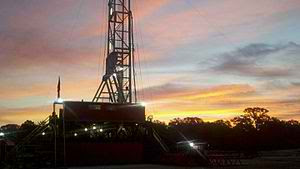This Forbes.com article discourses the false claim made by anti-fractivists regarding hydraulic fracturing.
 |
| Image Source: forbes.com |
“First, here is the actual truth of the matter … Dick Cheney didn’t do any harm to the Federal Clean Air Act because there is no “Halliburton Loophole” statutory law amendment of the Clean Air Act contained in the Energy Policy Act of 2005; you can read it here for yourself.
Because I’ve been tracking Congressional action on the Federal Clean Air Act for the last 37 years I can tell you with 100% certainty that the Federal Clean Air Act has never been amended to incorporate a categorical oil and gas industry exemption from the fundamental jurisdictional requirements of the Act. Josh Fox’s claim that the oil and gas industry has some sort of categorical exemption from regulation and that hydraulic fracturing and other oil and gas industry process equipment and facilities are exempted from regulation under the Federal Clean Air Act is fabrication and erroneous conflation.”
But Mr. Fox is far from the only anti-fractivist who makes this demonstrably false claim. Late last year, I traveled to Austin to participate in a panel discussion on the Sustainability of Shale Natural Gas at the annual SXSW Eco Conference. My basic role was to be the lone spokesperson for the natural gas industry on a panel whose other three participants were otherwise tilted (predictably) in the opposite direction. Which was fine – I actually enjoy a good debate, at least when the debate is based on facts and focused on real issues surrounding shale gas production.
Unfortunately, as is typical of this kind of setup, that turned out to largely not be the case. One statement made by the representative of the Natural Resources Defense Council (NRDC) really stood out from the rest. During his opening remarks, he characterized shale gas development as “an unregulated free for all”, and claimed that the “industry is exempt from RCRA, the Clean Air Act, the Clean Water Act, the Safe Drinking Water Act”, and other major federal environmental laws.
That characterization of the oil and gas exploration and production industry would come as a huge surprise to those who work in it. I personally have had a 33 year career in the industry, and know beyond any doubt that NRDC’s contention here is completely false. The fact of the matter is that pretty much everything anyone at an oil and gas company does on a daily basis is heavily regulated at the federal, state, and local levels, often at multiple levels simultaneously. I know that, and could only marvel that the NRDC could somehow remain unaware of it after years of opposition to the industry’s existence.
This reality was really brought home to me recently as I listened to the director of Health, Safety and Environment (HSE) for a large independent natural gas producer go through a presentation about the various state and federal laws and regulations his team of 35 people is responsible for ensuring the company be in compliance with. Note that this company employs around 700 people, so fully 5% of its workforce works full time to ensure compliance, and that does not include the daily efforts by the company’s field and office personnel to ensure compliance in their own activities.
At one point, the HSE Director displayed a slide listing the major federal acts the company must comply with. Lo and behold, that list included “RCRA, the Clean Air Act, the Clean Water Act, the Safe Drinking Water Act” and other major environmental laws like the National Environmental Policy Act, the Endangered Species Act, and OSHA, the act that governs workplace safety.
The HSE Director’s next slide listed, in very small print, all the various provisions of just the Clean Air Act that apply to exploration and production activities. If I tried to list them all here I’d run out of space, so I won’t try to do it. But one key point to understand is that last August, the EPA finalized a major new rulemaking related to National Emission Standards for Hazardous Air Pollutants (NESHAP) – governed by the Clean Air Act – that apply specifically to oil & gas E&P operations.
Is it really possible that the folks at the NRDC somehow missed completely a rulemaking process that dragged on for almost a year? Or was the NRDC spokesman just engaging in the very common practice preferred by these anti-development groups these days of throwing out inaccurate, hyperbolic statements about the oil and gas industry, expecting to go unquestioned on them by a sympathetic news media or a general public that doesn’t know any better?
While this practice is no doubt a useful way for anti-development groups to raise money by creating a perception of a never-ending crisis, it is a wholly non-productive exercise in what ought to be a quest to find real solutions to real issues that do exist around the development of this nation’s incredible wealth of shale oil and gas resources.
Are the existing regulations around shale gas development perfect? Probably not. Could they use some modernization? Probably so, and many states with significant shale development – like Texas, Colorado, Pennsylvania and Wyoming – are heavily engaged in that process right now. But characterizing the oil and gas E&P industry as “an unregulated free for all” is simply not true, and serves no useful purpose from a problem solving perspective. Those who engage in this sort of intentional misleading commentary, whether it be in presentations, written articles, speeches, panel discussions or filmmaking are performing a great disservice to the public.
Dr. Ali Ghalambor has served as consultant to numerous petroleum production and service companies. This Facebook page provides updates concerning the oil and gas production.
No comments:
Post a Comment